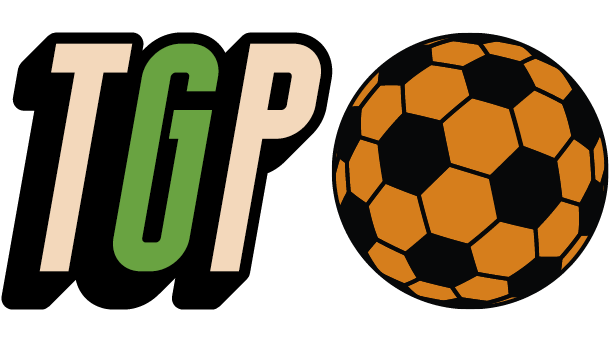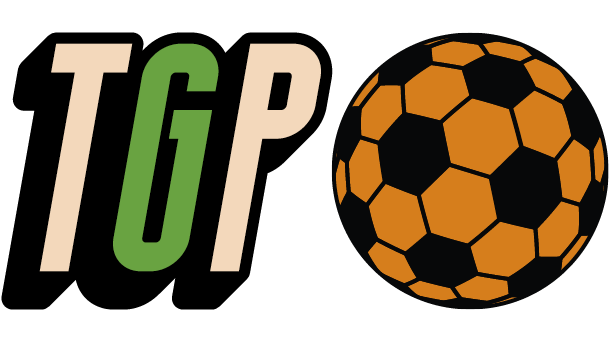Genuine, impactful, inspiring. We’ve run out of superlatives to describe Southwark Stars Disability FC.
WORDS: Charlotte Dukes IMAGES: Stuart Harper

What is it about grassroots football in particular that elicits the fondness and warmth we experience when we clap our boots together after a match? It often comes down to the way in which football makes us feel. The true meaning of grassroots lies in the impact that it can have on a wider level, upon its community, and on a micro level, upon its participants. In a small corner of South London, I found the true spirit of football when I met the members of Southwark Stars Disability FC. In a year characterised by struggle, Southwark Stars are a shining example of a team smashing down barriers in the face of adversity and the purest reflection of what football is truly about.
Before the formation of the Southwark Stars, Coach Louis Wickett-Padgham worked with a charity organising coaching sessions with a local disability group. However, when funding for the group was cut in 2017, the true scale of Louis’ mission statement was spelled out to him. Experiencing sporadic funding and a lack of infrastructure, it was clear that opportunities for disabled people to play football safely were simply not accessible. Louis wanted to change that narrative and he set straight to work on levelling the playing field. In 2017, Southwark Stars Disability FC was officially formed. The ethos of the team is based on inclusiveness and the Stars are one of only 100 clubs in the UK who are a Kick It Out Equality Chartered Club. They believe that there is no room for discrimination in football and strive to ensure that warmth and a sense of community dominates everything they do.

The team currently has twenty-to-thirty regular players of all genders and ages. They compete in the North London Special League. Yet the existence of Southwark Stars isn’t simply about getting players on the pitch – it’s also about building up the transferable skills that will support them through life and raise the profile of their community. As a glowing example, Lloyd was recently made captain of the team, an appointment he believes to be one of his proudest achievements in life. As captain, he says: “you have to take ownership for the team and ensure that everything flows properly for everyone in the game.” What he loves best about football is that each Southwark Star team member can bring their unique skills and qualities to the pitch and feel comfortable to be themselves.
In a small corner of South London, I found the true spirit of football when I met the members of Southwark Stars Disability FC
Watching the team train, I saw a powerful and supportive team network bringing out the best in its talented players. Players bring their friends along to Southwark Stars and the team grows stronger as a result; it also leads to player retention and a sense of community based on friendship and respect.
Rachel, mum of Southwark Star Temi, is one of the team’s most avid supporters. She was referred to the team by her son’s college, again demonstrating the power of word-of-mouth when it comes to recruitment of new members. Temi used to play in an elite club’s cerebral palsy team, yet Rachel believes he lacked the nurturing approach that was required to support his condition. She saw him lose interest despite the kudos of being in an elite club structure. It was only when he joined the Stars that she saw the true spark and passion for the game and confidence grow within him.

When I ask why Rachel believes the team is so special, she highlights the warm environment at Southwark Stars that Temi required to thrive, both at matches and training. “There’s no consequence to winning or losing,” Rachel notes, and Temi simply cannot wait to attend training on a weekly basis. Rachel adds that Coach Louis is the cornerstone of the success of the club, providing a safe space for all of the Stars. But his efforts often go under the radar: “his humility strikes me too,” says Rachel, “as he mentions he’s just trying to ‘give a little back’, when he’s touching the lives of a group of adults in a very meaningful way.”
Not only are the players thriving individually, they are equally striving to pave the way for others in the sport. One of the Southwark Stars, Patrick, is fifty-one, and a qualified disability coach, being a visible role model for those who are aspiring not only to play in the game, but also to make an impact in the wider infrastructure of football. When I speak to Coach Louis about what more needs to be done to develop further opportunities for his team members (of which six already have FA chartered qualifications), it’s about achieving an authentic buy-in from mainstream clubs for disabled people wanting to get involved in the game at any level. This continues to be a barrier to progress. Nevertheless, Patrick’s optimism for the future is evident, as he tells me that sports can be adapted to any disability if the right thought, consideration and work goes into it. He’s currently working on adapting Gaelic football to work better for those with a disability. This is an example of someone truly leading the way for future generations. When I ask Patrick what drives him to contribute towards the future of disability sport, he tells me: “I’ve got a lot to give.”
For other team members, the true power of Southwark Stars Disability FC lies in its ability to be a platform to simply bring joy. When asked why she loves the game, Wendy told me it’s because it really makes her happy. Coupled with a beaming smile, her passion for the sport was clear to see. Similarly, Maisa tells me that one of her favourite elements of the team is her teammates and I’m not surprised. Within thirty minutes of arriving I was surrounded by a team of curious, genuine, caring and warm characters. I felt inspired by the camaraderie and sheer joy of being part of the team that I witnessed on the pitch. For Johnny, too, the key thing that matters is having fun: “you don’t need to be playing for a team in the Champions League to enjoy football.”
Players bring their friends along to Southwark Stars and the team grows stronger as a result; it also leads to player retention and a sense of community based on friendship and respect
Given the importance of football to the Southwark Stars players, the cancellation of grassroots sport due to lockdown in 2020 was a huge blow for the team. Louis laments that the pandemic couldn’t have come at a worse time for the Stars as many of the players spent the majority of the lockdown shielding and away from the routine and community of football. In the Active Alliance 2020/21 survey it was found that twice as many disabled people felt that coronavirus greatly reduced their ability to do sport or physical activity compared to non-disabled people, with respondents stating that the lack of activity has led to both their physical and mental health being harder to manage. Southwark Star, Alex (referred to as Donny van de Beek by his teammates, as an avid Manchester United supporter), told me that one of his favourite things to do is going to the pub with friends or watching a football game live. In the absence of his normal hobbies and activities, he found lockdown frustrating. To continue to provide support, Louis leveraged the power of the same technology we’ve all become increasingly familiar with in lockdown, using Zoom to keep fitness, training and team morale as high as possible.

Emerging from lockdown is the release the whole team longed for. With training back in swing and fixtures in the pipeline, the energy and enthusiasm of the Stars is evident. As I join them for training, they’re gearing up for back-to-back friendly matches versus South London rivals Sutton United FC. They went on to win their ‘Championship’ fixture 3-2, whilst narrowly losing their league game 4-3.
Considering their progress and growth since inception in 2017, the future continues to look bright for the shining Stars. One of the key projects for the club going forward is the formation of their women’s team. Given that many teams in the UK still haven’t branched out into women’s football, this is a clear sign of Southwark Stars’ forward-thinking approach to football, particularly for a club so young. Promoting the Southwark Stars network and visibility, Louis also highlights the importance of the growth of the club’s social media channels, which has helped the team to reach a wider audience. Raising the profile of players through the utilisation of technology has been another key step to the growth of the club and has increased the visibility of what has typically been an overlooked and underfunded area of football.
Leaving the training session with the sun going down, my time with the Southwark Stars struck a chord with me. Through the formation and growth of the Stars in South London, Louis has enabled a very powerful community to be created. And through simply turning up and being visible role models for those around them, the Southwark Stars team are trailblazing for those disabled people who want to play the grassroots sports they truly love. That is what football is all about.


